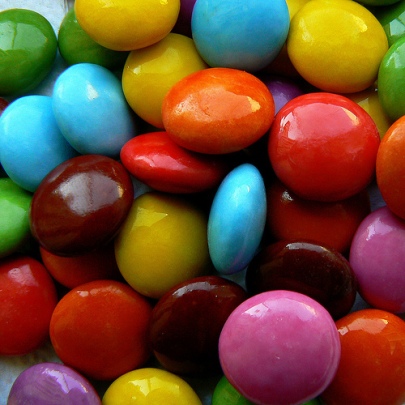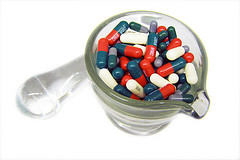For a blog established to examine the role of science in pharmacy practice, I’ve given a disproportionate amount of attention to homeopathy. Which is frustrating, because homeopathy is not something that pharmacists, or the pharmacy profession, should even need to discuss. Unlike herbal remedies, and some supplements, there isn’t even any science to discuss. As pseudoscience goes, homeopathy is the worst of the worst – it is a belief system, nothing more. If homeopathy actually worked as claimed, it would mean that all we know about biology, biochemistry, pharmacology, and toxicology was wrong. Not a little wrong, but completely wrong. Which would then mean that all we know about science-based medicine is wrong.
In short, homeopathy is an elaborate placebo system, based on the idea that “like cures like” (which is simply a form of magical thinking) involving successive dilutions of products in water, like Berlin Wall, “Mobile Phone (900mHz)“, and even the light reflecting off Saturn. These substances are believed to have medicinal effects, and the dilutions are believed to increase, not decrease, the potency of the final product. But the dilutions in homeopathy are so great you’re not even getting any Berlin Wall. Think of putting one drop of a substance into a container of water. Only that container is 131 light-years in diameter. That’s the “30C” dilution. Homeopaths believe that the water molecules retains a “memory” of the original substance (while conveniently forgetting all the other products it has come in contact with.) The final remedy is diluted so so completely that most products on store shelves don’t contain a single molecule of the ingredient listed on the label. After all that dilution, the water is dripped on tablets of sucrose and lactose: They are, as a final product, sugar pills. Chemically indistinguishable, and as medicinal as a box of Smarties.
Not surprisingly, a review of clinical trials, when you control for biases, confirms what grade-school numeracy and scientific literacy would suggest – homeopathic products are no more effective than a comparable placebo. Yet frustratingly, regulators in Canada and in other countries have given legitimacy to homeopathy by registering both the medication and their purveyors – risking the perception that homeopathy may in fact offer medicinal value. And whether it’s due to ignorance of homeopathy, or indifference to the unfounded ideas of “alternative” health, legitimate health professionals continue to give a pass to homeopathy, taking a “What’s the harm” attitude. Yet harms can result: Continue reading



![090304pharmacists An Open Letter to Australian Pharmacists (Click to enlarge [PDF])](https://sciencebasedpharmacy.files.wordpress.com/2009/04/090304pharmacists.gif?w=206&h=300)


You must be logged in to post a comment.